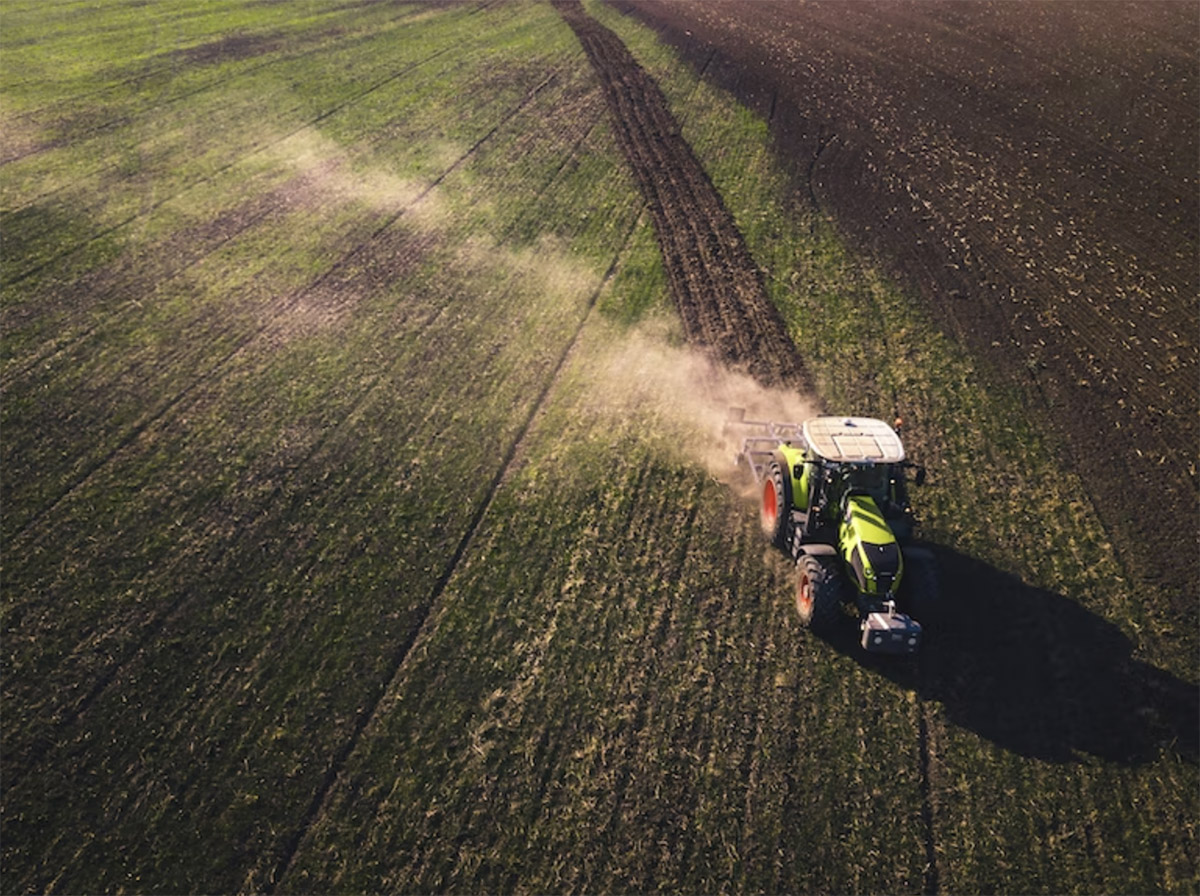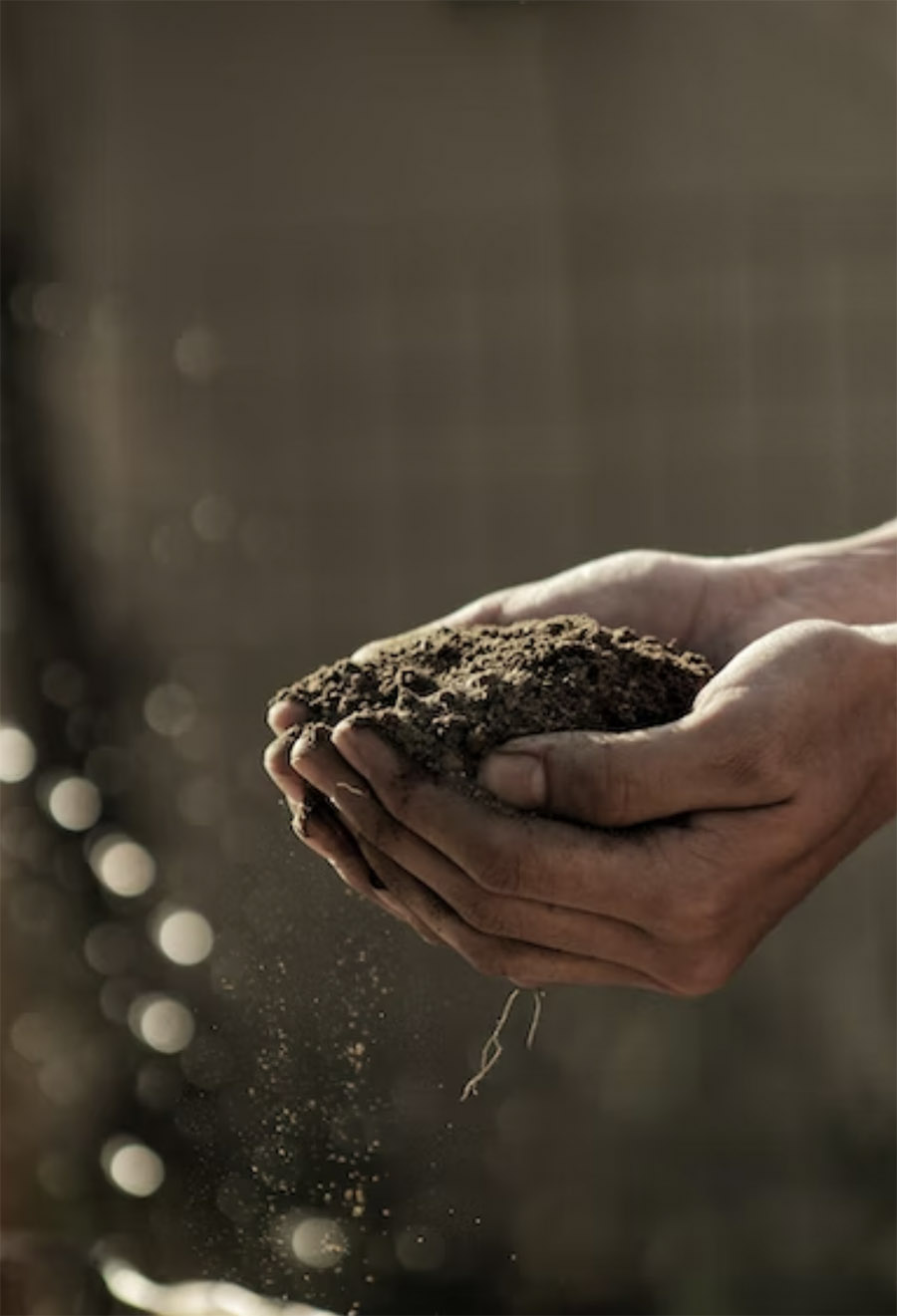October 5, 2022
To address growing food insecurity, improvement of farming systems is necessary. Madaline Dunn investigates the different models being explored and finds out why farmers must have a seat at the table.


Food insecurity is an issue that has significantly worsened over the last six years due to conflict, climate extremes, and economic downturns. According to the Food and Agriculture Organization of the United Nations, moderate or severe food insecurity now affects 30% of the world's population. As outlined by the OECD, the global pandemic has also exacerbated the situation and “reversed” many gains that were “already uneven” across countries. In 2021, for example, the Global Report on Food Crises 2022 noted that hunger levels had “surpassed” all previous records, with 193 million people facing acute food insecurity - increasing by 26% from 2020. Moreover, projections from a new report by Eurasia Group are that by November 2022, 1.9 billion people globally will face food insecurity.
To improve global food security, our farming systems need an overhaul, which means changing how we look at food, production, and agro policies. Many of the paths to food system change involve establishing a closer connection with nature, investing in regenerative agriculture and establishing stronger local and circular food systems.
If Sri Lanka’s sudden and disastrous switch to organic and the response to the Dutch government’s recent agricultural restrictions tell us anything, it’s that the transition to a more sustainable food system requires collaboration between governments and farmers.
The global pandemic, supply chain strains, the Ukraine war, and a spate of climatic events have disrupted global food systems and exposed their weaknesses. Subsequently, many are investigating alternative ways of growing and distributing food to create more resilience. A number of different agricultural models are being suggested, one of them being agroecology.
Agroecology applies ecological and social concepts and principles to the design and management of food and agricultural systems and has been highlighted by the IPCC for its climate mitigation and adaptation potential. The FAO Tool for Agroecological Performance Evaluation (TAPE) methodology, for example, found that agroecological farms score higher on dietary diversity and food security; benefits for family farming; better soil health; agrobiodiversity; and presence of beneficial animals and pollinators.
In a conversation with GPC reporter Madaline Dunn, Dr. Nathan Einbinder, a sustainability researcher and program lead in regenerative food and farming at Schumacher College, explained the potential of agroecological practices and the importance of context. Einbinder recently returned from a research trip to the Maya Achi territory in Guatemala. There, farmers are transitioning to organic and agroecological practices and returning to the cultivation of indigenous crops and plants after decades of using agrochemicals. Through these practices, there is an emphasis on the importance of native crops and plants in the food system, which Einbinder said is very relevant to the UK and its agriculture. When asked about the scalability of agroecology, specifically agroforestry, Einbinder said that every space is context-specific and that each area must develop its own framework for what works with the land.
Schumacher College in Devon, UK, is part of the Dartington Trust and at the forefront of agroecological experimentation. It has its own forest gardens and experimental agroforestry spaces, through which it demonstrates the relationships that plants develop with each other, acting as a template for more holistic and regenerative food systems. Schumacher College is undoubtedly a hub for innovation, but it is also relatively unique in its approach.
When asked what is required to disseminate this kind of knowledge to a broader spectrum of farmers, Einbinder said communication is key, and it’s important that UK farmers who have already gone through the transition share their story with others on their land, speaking their own language, and encouraging and empowering others to experiment on their own land.
Hodmedod’s is an independent food retail and production company that has been working since 2012 to bring communities closer to locally-produced food and increase the consumption of British-grown pulses. The company also works with farmers practicing agroecology and agroforestry and is building a network of farmers who are, just like the community of farmers in the Maya Achi territory, trialing indigenous pulses.
Agroforestry comes under the bracket of agroecology and is a practice that intentionally integrates forestry with agriculture. Compared with 1000 years ago, the UK has some of the lowest tree cover in Europe but agroforestry seeks to address this while promoting biodiversity. George Young is one of the farmers Hodmedod’s is working with who is employing these practices at Fobbing Farm in Essex. Young has planted a variety of trees on his farm, and as of 2021, he had planted nearly 7000 trees while also producing lentils, yellow peas, and buckwheat for Hodemedod’s.
Agroecological practices, aside from bringing us closer to nature, also promote the rise of local food networks, which, in the face of recent crises and supply chain disruptions, is a move that will only bolster food security in the UK. Through building a network of farmers and facilitating a greater consumption of locally-produced food, food miles also shrink, which is hugely important considering that they were recently revealed to contribute to 6% of the world’s greenhouse gas emissions.
According to Innovation For Agriculture (IFA), an independent knowledge exchange charity, regenerative agriculture encourages “a return to the mixed farm," where livestock is used as a tool to heal the land between crops. It employs several techniques, including livestock integration, cover crops, no-till agriculture, and crop diversification. Recent research has also revealed that regenerative agriculture promotes healthier soil, with food grown on regenerative farms exhibiting higher levels of magnesium, calcium, potassium, zinc, vitamins, and phytochemicals. This is incredibly valuable considering that studies have found that between 60-70% of soils in the EU are now categorized as “unhealthy,” with UN estimates revealing that approximately 12 million hectares of farmland become “severely degraded” each year.

Soil quality will play a huge role in feeding 10 billion people by 2050 and ensuring ecological sustainability. A study published in the journal Frontiers in Sustainable Food Systems, for example, outlined that with the added pressure of heat stress due to climate change, soil’s ability to retain moisture will be a “crucial factor in crop success.” Right now, the forecasts are grim, with experts predicting crop production to decrease by 25% within the next 25 years, right when it needs to double.
Regenerative farming holds the key to transforming soil quality, and it is becoming increasingly mainstream. According to nonprofit Regeneration International, as of 2019, there were 218 regenerative farms or projects located in 55 different countries as part of the Regeneration International Partner Network. However, there are concerns around scalability. As a biological system, it takes time and dedication to build regenerative farming systems, and it isn’t a quick fix. That said, with increased support and investment and by bringing together nonprofits, large corporations, government officials, small-scale farmers, investors and activists, a successful transition is possible. It’s also important to note that while many companies claim to use regenerative approaches within their production, according to IPES-Food, only 6% have backed this up with data or “set company-wide targets.”
Wide Open Agriculture (WOA) is an Australian company that has been incorporating regenerative agriculture into its operations from its inception. From working with local regenerative farmers to manufacturing its regeneratively-farmed lupin-based Buntine Protein, the company is seeking to make improvements to the Australian food system.
Speaking to the GPC about the role pulses have to play in our transition to a more sustainable future, Merilyn Elson, strategic product innovation manager at WOA, said that the adoption of diets such as ‘The Planetary Diet,' which advocates for greater consumption of pulses can help “both agriculture and the food industry become more ecological."
In July 2021, Henry Dimbleby, the co-founder of Leon restaurants, lead non-executive director at Defra, and co-author of The School Food Plan, conducted an independent review into the UK’s entire food chain, from field to fork. Dimbleby outlined that our eating habits are “destroying the environment” and threatening food security. To address this, his strategy suggests encouraging the development of alternative proteins. His report also stressed that farmers must be at the center of any food transition as “custodians of the land.”
Willicroft, a plant-based cheese specialist based in Amsterdam, is an example of exciting innovation in this area. Formerly a dairy farm, the brand switched to plant-based cheese production and, after becoming aware of cashews’ high carbon emissions, it switched to white beans as the base of its products. Now, the company is employing regenerative farming techniques to grow four varieties of beans with the Lamers family at their farm De Scholvert, a project monitored by students at Wageningen University and Louis Bolk Institute. The project has big aims and founder Brad Vanstone hopes it will be the catalyst for transitioning dairy farmers onto regenerative arable farming.
While there is no doubt that a reimagining of our food systems is required to secure a sustainable future and enhance food security, as Dimbleby outlined, farmers must be involved in discussions and planning.
It is clear that as we advance, governments must establish an open dialogue with farmers and food producers and support them in the transition to more sustainable agricultural models. Ultimately, policymakers, environmentalists and activists need to understand and work with those in the farming industry to prevent further disruptions to food supply chains, and instead work towards productive and inclusive discussions that lead to real, impactful change.

Reimagining agriculture / food insecurity / regeneration / agroecology / farming systems / food system change / regenerative agriculture
Disclaimer: The opinions or views expressed in this publication are those of the authors or quoted persons. They do not purport to reflect the opinions or views of the Global Pulse Confederation or its members.